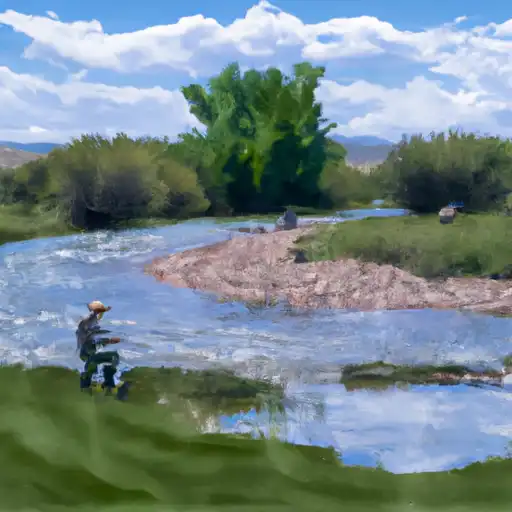Summary
The reservoir is a popular destination for anglers due to its large population of various fish species, including rainbow trout, brown trout, kokanee salmon, and yellow perch.
Fishing in the reservoir requires a valid Colorado fishing license, which can be obtained at local sporting goods stores or online. Anglers can use various techniques such as fly fishing, spin fishing, and bait fishing to catch their desired fish species.
In addition to fishing, there are plenty of nearby activities to enjoy, such as hiking, camping, and boating. There are also several RV parks and campgrounds located in the area.
The best time of year to visit Nichols Reservoir for fishing is during the spring and fall months when the water temperature is cooler and the fish are more active. The average temperature during the spring is around 50-60°F, while the average temperature in the fall is around 40-50°F.
Here are some fishing tips for Nichols Reservoir:
- Try using lures that mimic the natural prey of the fish species you are targeting.
- Use a light line and leader to increase your chances of getting a bite.
- Fish near drop-offs, rocky areas, and submerged structures where fish like to hide.
- Use a fish finder to locate schools of fish and determine the depth they are at.
Overall, Nichols Reservoir is a fantastic fishing destination with plenty of fish species to catch and nearby activities to enjoy. With the right fishing gear and techniques, anglers can have a successful and enjoyable fishing trip.
°F
°F
mph
Wind
%
Humidity
15-Day Weather Outlook
5-Day Hourly Forecast Detail
Nearby Streamflow Levels
Angling Safety Guidelines
Check local fishing rules, seasons, size limits, and license requirements to ensure legal and sustainable angling.
Handle Fish Responsibly
Use wet hands, minimize air exposure, and release fish gently to improve survival rates when practicing catch-and-release.
Choose the Right Gear
Match your rod, line, and tackle to the species and conditions to increase success and reduce unnecessary harm to fish.
Respect the Waterway
Avoid disturbing habitat, prevent bank erosion, and keep a safe distance from spawning areas to protect ecosystems.
Keep It Clean
Pack out all line, hooks, bait containers, and trash—discarded gear can injure wildlife and degrade waterways.
Related Links
Area Campgrounds
| Location | Reservations | Toilets |
|---|---|---|
 Thunder Ridge
Thunder Ridge
|
||
 Thunder Ridge Campground
Thunder Ridge Campground
|
||
 Meadow Ridge
Meadow Ridge
|
||
 24
24
|
||
 23
23
|
||
 22
22
|

 Homestake Fishing Site
Homestake Fishing Site
 Rampart Reservoir
Rampart Reservoir
 Crystal Creek Reservoir
Crystal Creek Reservoir
 South Catamount Reservoir
South Catamount Reservoir
 Deadmans Creek
Deadmans Creek






 Northfield
Northfield
 Marshall Sprague
Marshall Sprague
 Blodgett Peak Open Space
Blodgett Peak Open Space
 United States Air Force Academy Athletic Fields
United States Air Force Academy Athletic Fields
 Oak Valley Ranch Park
Oak Valley Ranch Park
 Woodman Valley Park
Woodman Valley Park